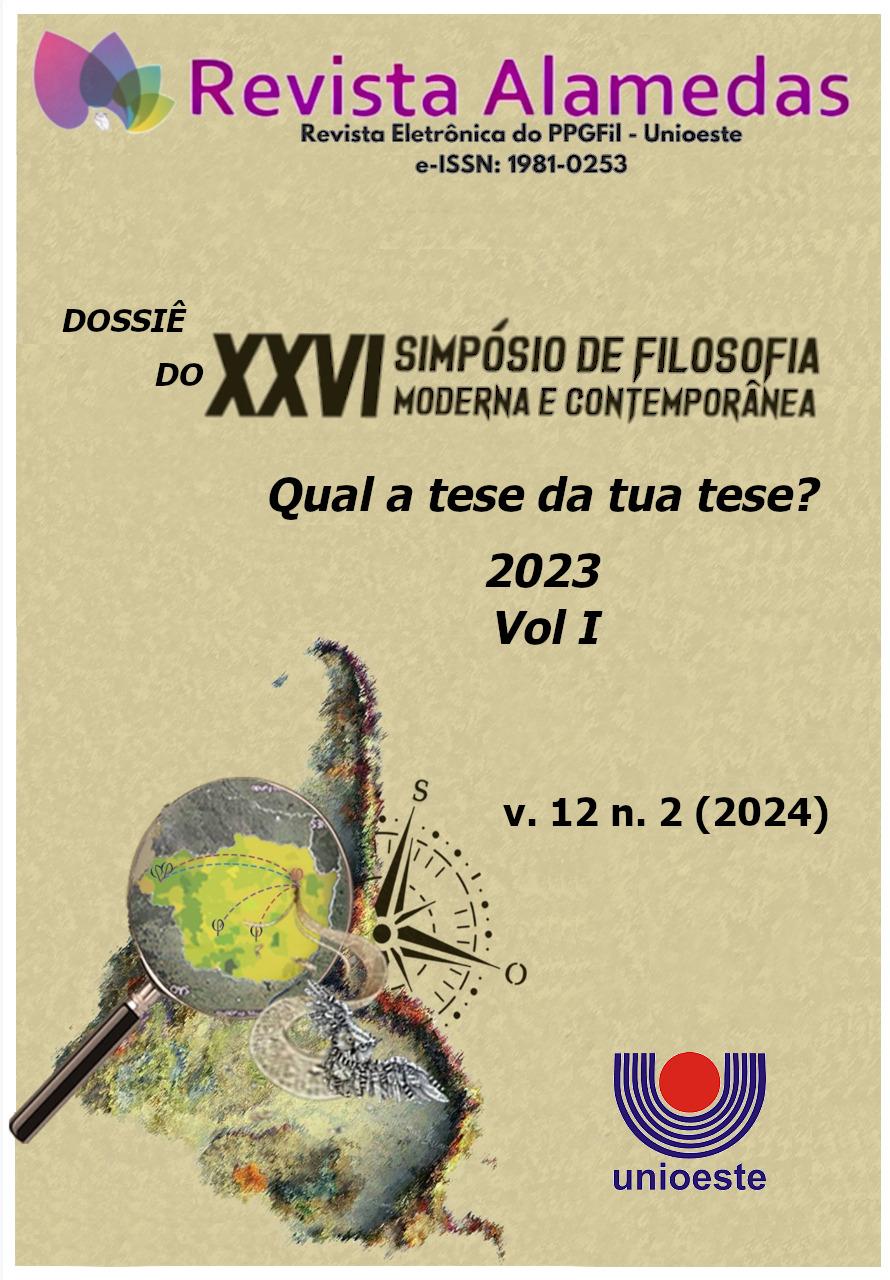Da servidão à liberdade
o aprender como problema e conceito filosóficos
DOI:
https://doi.org/10.48075/ra.v12i2.33065Keywords:
Aprender, Servidão, LiberdadeAbstract
To consider the question: “after all, what is the thesis of your Thesis?”, this theoretical path fulfills the intention of proposing an eminently philosophical approach to learning, in order to provide it with conceptual consistency and, consequently, affirm it as an event that occurs in a movement that leads from servitude to the glimpse of freedom. To this end, first, learning is thought of as a presupposed and subjective notion in ancient and medieval philosophy, based on excerpts from the philosophies of Plato, Aristotle and Thomas Aquinas; later, in modernity, it ascends to philosophical protagonism, when posed as a problem, in the path that leads from the first Discourse (1973) to Emile (1999), by Rousseau; and, finally, in contemporary times, it moves from the path of the problem to the path of the philosophical concept, based on Deleuze's philosophy of difference and boosts academic research in the scope of education and related areas. Thus, this path is composed of resonances between the philosophies of Rousseau and Deleuze, supported by the theoretical perspective of Candide's literature and Exupéry's literary narrative, in a scenario characterized by the intertwining of ethics with politics. In this sense, this study promotes the opening of a space to think about learning in other ways, beyond teaching, education and its related areas. Furthermore, it also contributes to opening other lines of interpretation of the works of Rousseau and Deleuze, as, on the one hand, it investigates possible influences of Rousseau on Deleuze's thought and, on the other, it encourages a reading of Rousseau's texts by through the specific way of doing philosophy proposed by Deleuze. As a theoretical foundation, this study is supported by the primary bibliography of Rousseau and Deleuze, the secondary bibliography of commentators and lines of consolidated interpretations of both authors and current academic research on learning.
Downloads
Published
How to Cite
Issue
Section
License
Copyright (c) 2024 Alamedas

This work is licensed under a Creative Commons Attribution-NonCommercial-ShareAlike 4.0 International License.
Aviso de Direito Autoral Creative Commons
Política para Periódicos de Acesso Livre
Autores que publicam nesta revista concordam com os seguintes termos:
1. Autores mantém os direitos autorais e concedem à revista o direito de primeira publicação, com o trabalho simultaneamente licenciado sob a Licença Creative Commons Attribution que permite o compartilhamento do trabalho com reconhecimento da autoria e publicação inicial nesta revista.2. Autores têm autorização para assumir contratos adicionais separadamente, para distribuição não-exclusiva da versão do trabalho publicada nesta revista (ex.: publicar em repositório institucional ou como capítulo de livro), com reconhecimento de autoria e publicação inicial nesta revista.
3. Autores têm permissão e são estimulados a publicar e distribuir seu trabalho online (ex.: em repositórios institucionais ou na sua página pessoal) a qualquer ponto antes ou durante o processo editorial, já que isso pode gerar alterações produtivas, bem como aumentar o impacto e a citação do trabalho publicado (Veja O Efeito do Acesso Livre).
Licença Creative Commons
Esta obra está licenciada com uma Licença Creative Commons Atribuição-NãoComercial-CompartilhaIgual 4.0 Internacional, o que permite compartilhar, copiar, distribuir, exibir, reproduzir, a totalidade ou partes desde que não tenha objetivo comercial e sejam citados os autores e a fonte.


